Search
Did you mean: Anu?
Remove Ads
Advertisement
Summary 
Loading AI-generated summary based on World History Encyclopedia articles ...
Search Results
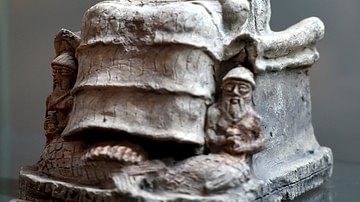
Article
Enki's Journey to Nippur
Enki's Journey to Nippur (c. 2000 BCE) is a Sumerian origin myth explaining the creation of the temple at Eridu by the god Enki and how musical instruments were ordained for use in festivals in ancient Mesopotamia. The poem formed part of...
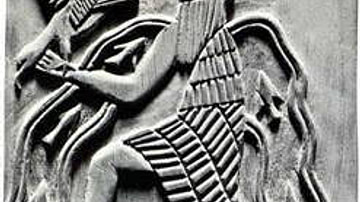
Definition
Enki
Enki (also known as Ea, Enkig, Nudimmud, Ninsiku, Nissiku) was the Sumerian god of wisdom, fresh water, intelligence, trickery and mischief, crafts, magic, exorcism, healing, creation, virility, fertility, and art. Iconography depicts him...
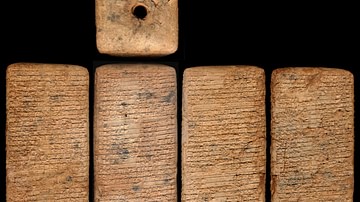
Article
Kesh Temple Hymn
The Kesh Temple Hymn (c. 2600 BCE) is the oldest work of literature in the world, sometimes referenced as the oldest extant religious poem. It is a Sumerian praise song to the goddess Ninhursag and her temple in the city of Kesh, composed...

Article
The Mesopotamian Pantheon
The gods of the Mesopotamian region were not uniform in name, power, provenance or status in the hierarchy. Mesopotamian culture varied from region to region and, because of this, Marduk should not be regarded as King of the Gods in the same...
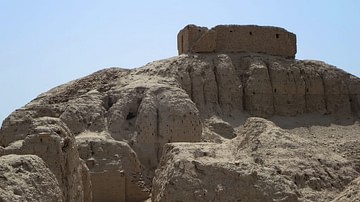
Article
Enlil in the E-kur
Enlil in the E-Kur (c. 2000 BCE) is a Sumerian hymn praising the sky god Enlil, his temple/ziggurat at Nippur, and his consort Ninlil, depicting all three in glowing terms and Enlil as a creator-god. The piece is highly regarded as an important...
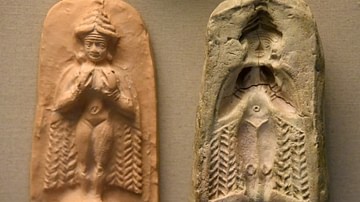
Article
Inanna and Su-kale-tuda
Inanna and Su-kale-tuda (c. 1800 BCE) is a Mesopotamian myth dealing with rape and justice in ancient Sumer. The work has been interpreted as an astral myth or a figurative account of the rise of the southern states against Akkad, but the...
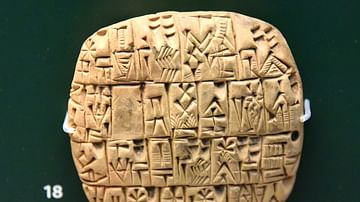
Article
Hymn to Nisaba
The Hymn to Nisaba (c. 3rd millennium BCE) is a poem praising Nisaba, the Sumerian goddess of writing and accounts who also served as scribe of the gods. The poem is officially dedicated to Enki, the god of wisdom (sometimes given as her...
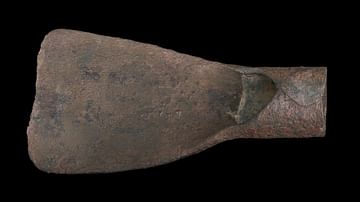
Article
The Song of the Hoe
The Song of the Hoe is a Sumerian praise poem celebrating the hoe for its many uses and linking it to the creation of the world by the great god Enlil. As the economy of Mesopotamia was almost entirely based on agriculture, it is not surprising...
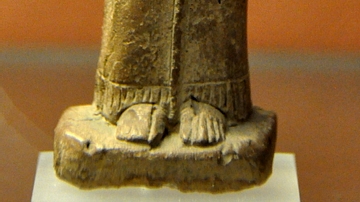
Image
Lahmu Statuette
Lahmu (also Lakhmu or Lache, which mean hairy) was a a son of Abzu and Tiamat. Lahmu was a minor protective and beneficent deity and was often associated with Ea, God of the sweet water and wisdom. From Nineveh (modern Ninawa Governorate...
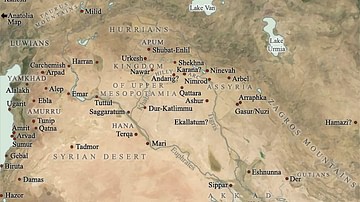
Article
Mesopotamia: The Rise of the Cities
Once upon a time, in the land known as Sumer, the people built a temple to their god who had conquered the forces of chaos and brought order to the world. They built this temple at a place called Eridu, which was “one of the most southerly...